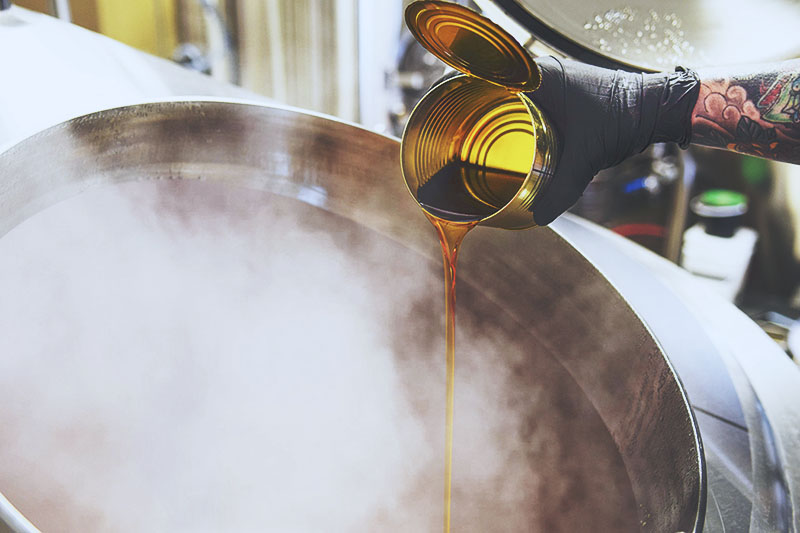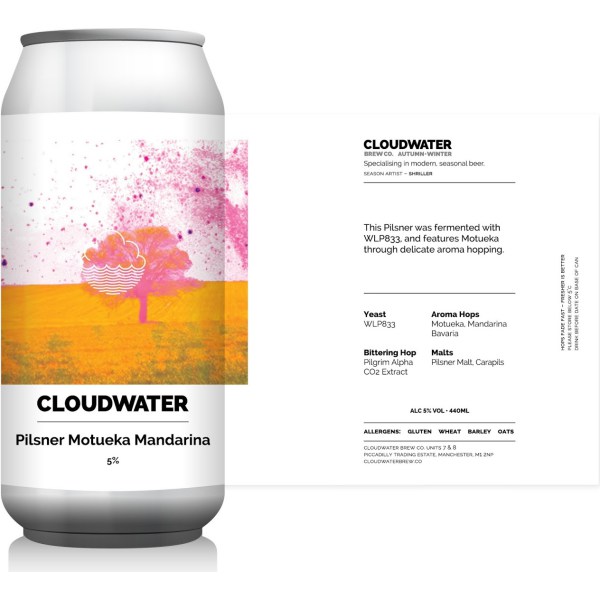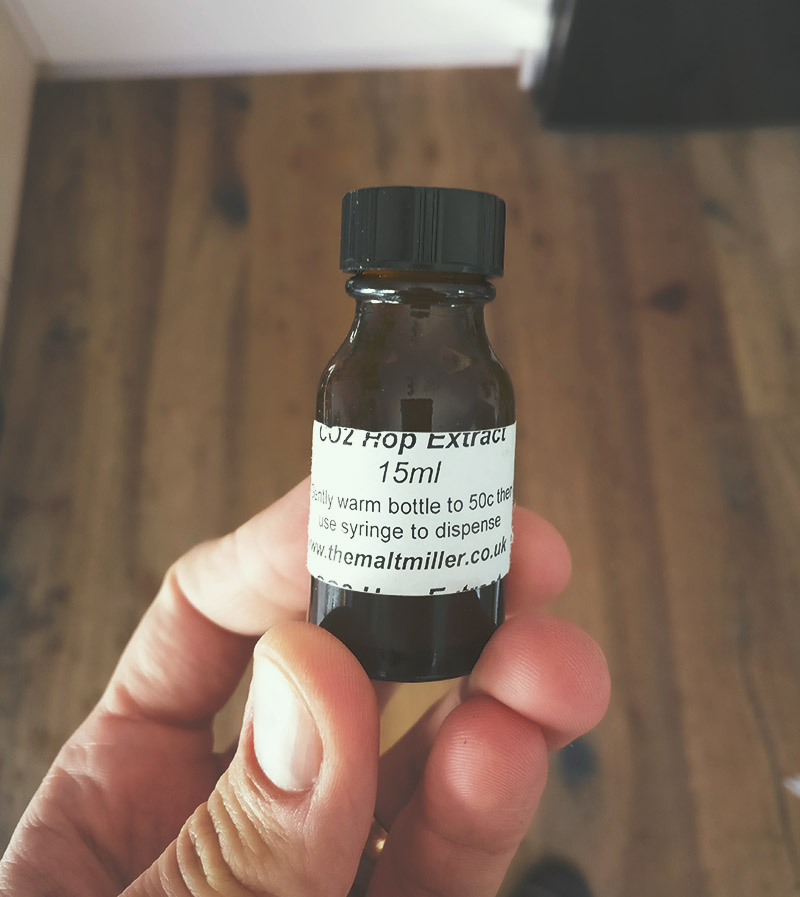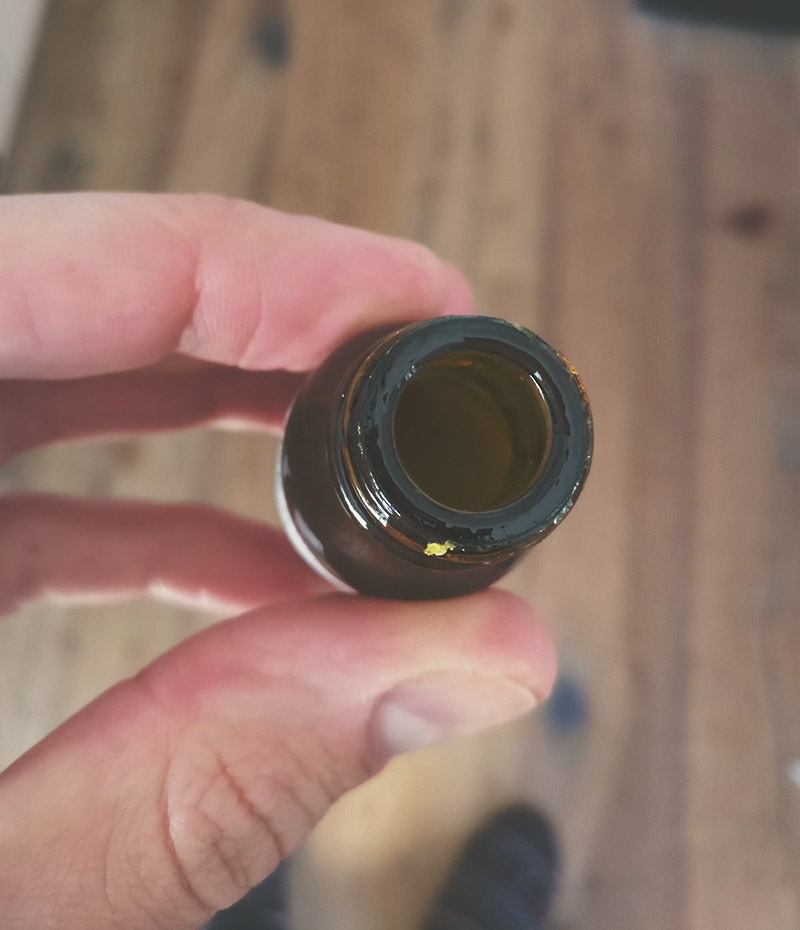Using CO2 hop extract in homebrewing
Have you ever wondered how commercial brewers are able to achieve consistent levels of bitterness in their beers time and time again? Well, commercial brewers have been using CO2 hop extract to add a level a bitterness to their beers for decades. If you’ve never seen it before, CO2 hop extract is made up of the lupulin and oils from the hop which are separated from the whole cone in the lab. CO2 hop extract is the pure resin extract of hops containing alpha acids, beta acids and hop oils. The end result is a thick, sticky, molasses-like substance at the end of the process.
It kind looks like this.

Source: Imbibe Magazine
But what does this mean for the average homebrewer and why should you bother with it? Well, CO2 extract gives you a cleaner bitterness and hop aroma as well as enhanced foam stability, not to mention the fact that it reduces the amount of vegetative matter in your kettle. You treat it just like leaf or pellet hops added during the boil. This means that you add CO2 extract at the start of the boil to achieve bitterness and then towards the end of the boil you add hops for aroma. Ultimately, this results in less trub in your kettle and an easier brew day!
I remember looking at the ingredients on the side of a can of Cloudwater beer a while ago and noticed that they listed their bittering hops as Pilgrim CO2 Alpha Extract. Being a fan of their beers, this piqued my interest and I was keen to learn more.

Lately I’ve been experimenting with CO2 hop extract to achieve bitterness in my beers and have been surprised with the results. In fact, I’ve used CO2 hop extract for everything from Saisons to Pale Ales - you just need to adjust to achieve varying levels of bitterness. I bought mine online from Malt Miller here in the UK, but it is available from many other online retailers throughout the world.
It comes in small vials that look like a little like the image below.

Northern Brewer in the US sells Hop Shots in a handy syringe that contains pre-measured CO2 extract for you. However, if you are looking for larger amounts, you could even buy an entire can and split it accordingly.
Usage
So how much do you need to use? Well, 4.5 milliliters of extract in a 23 litre batch will give you around 35 IBUs when boiled for an hour. This equates to 1 ml giving 10 IBUs in 5 gallons of wort.
It’s worth mentioning that CO2 extract is like a thick, sticky molasses. It’s not that easy to work with, but there are a few approaches that you can use to add it to your wort. According to the manufacturer's instructions, you can submerge the bottle in a cup of warm (60 celsius) for five minutes until the extract softens and then dose with a syringe. My preferred method is to actually just use a teaspoon handle and dig the amount out of the jar - sure you don’t get the exact measurement, but it's a lot less to clean up afterwards.

Using CO2 extract is a relatively inexpensive to get started with and I definitely recommend experimenting with it. The best part about using it is that you simply need to add hops at the end of the boil for aroma, as the bittering has already been done for you. It definitely makes for a simpler brew day!
Further reading
If you’d like to learn more about CO2 hop extract, I recommend reading the following articles:
Have you used CO2 Hop extract before in your homebrewing and what was your experience?
